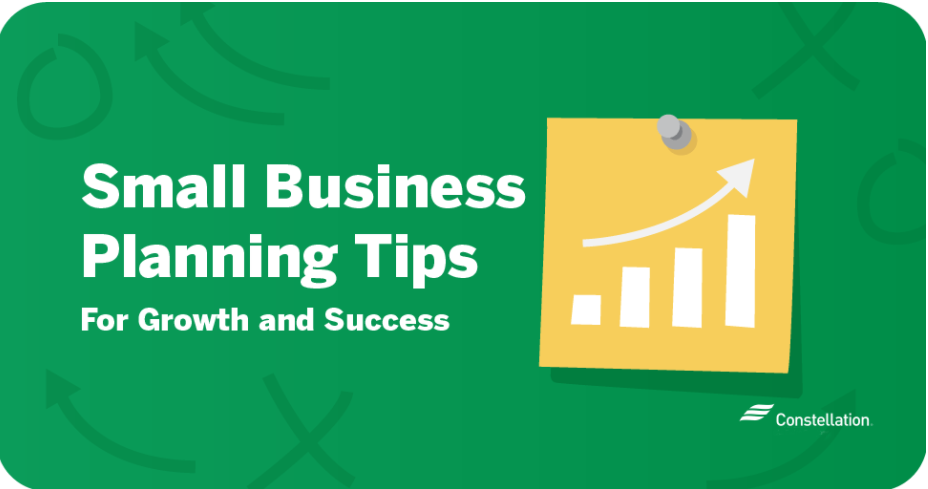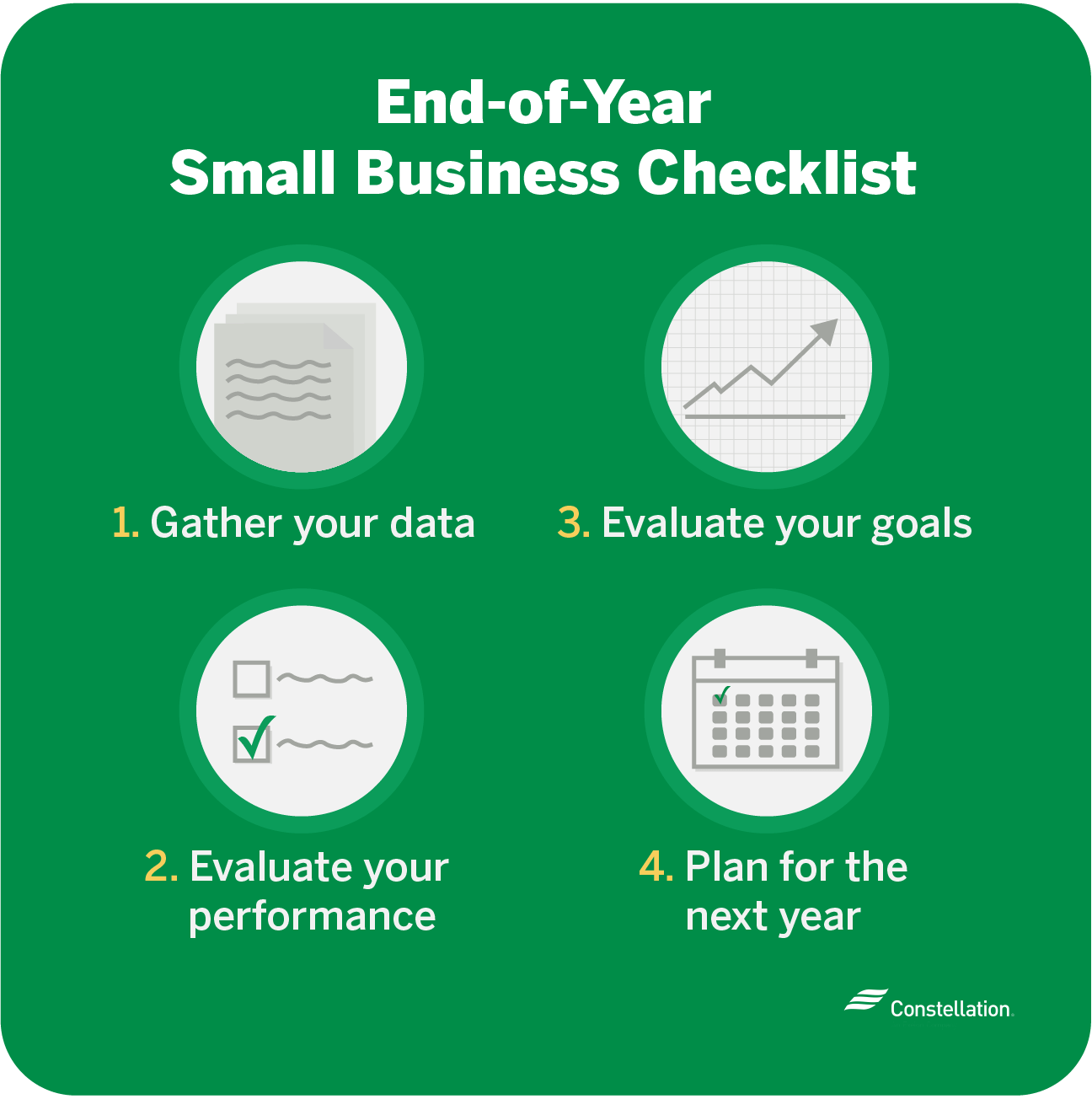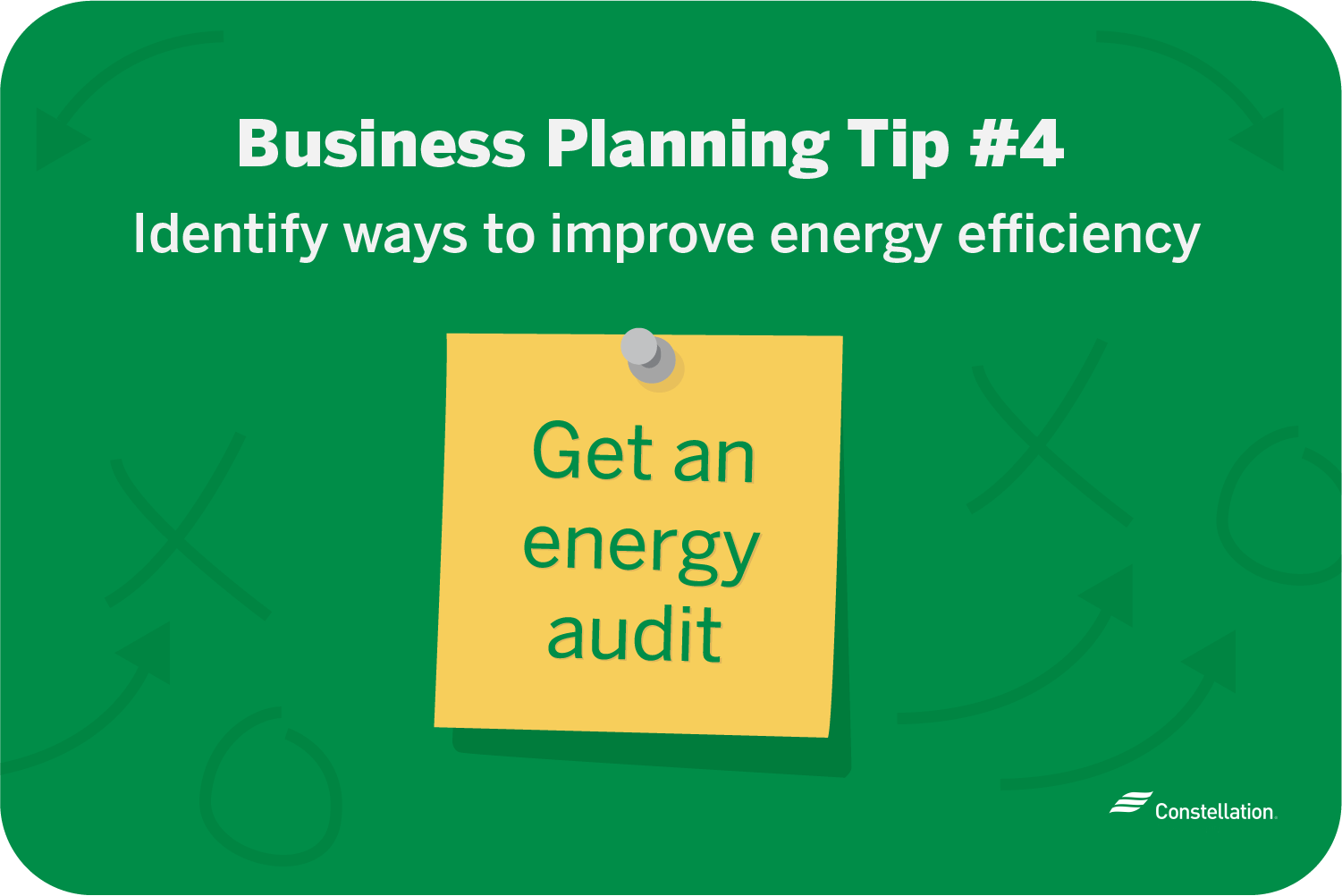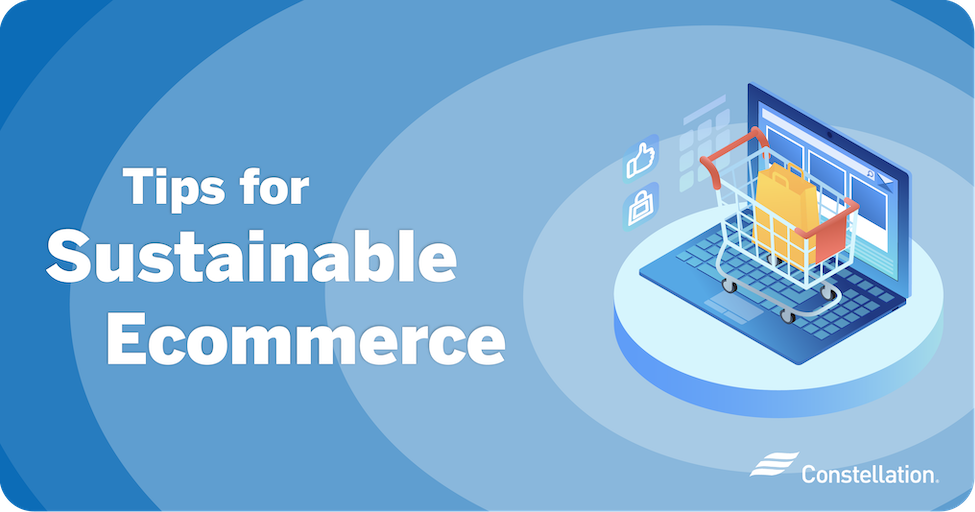
- Category:
Small Business Energy Savings -
Last updated:
July 28, 2022
Small Business Planning Tips for Growth and Success
You know how to run your business and you have a firm understanding of what your customers and clients need. And if you’re planning for small business success, you probably appreciate that success requires a strong business plan. It’s here that many small business owners may run into questions: What is business planning? And what makes a great business plan?
Fortunately, you’re not alone in asking these questions. And there is a lot you can do to help your business thrive. From improving your energy efficiency to breaking down your budget, there are many ideas for a business plan you can use to guide you to growth and success.
What Is Business Planning?
Let’s define what business planning is all about: a business plan is a road map for your business’s success. It outlines business goals and your next steps to attain those goals, most often in the form of year-end planning.
Use a Small Business Year-End Checklist
Year-end planning for businesses is as much about looking back as it is about looking forward, and that’s where using a year-end checklist can help. During year-end planning, a business examines the successes and setbacks of the previous year while making a plan that builds on existing strengths and addresses areas of concern. You already know that there’s a lot to plan for, so using a small business year-end checklist will allow you to keep track.
Small business year-end checklist
Steps you need to take during year-end planning for businesses include the following:

- Gather your data. Gathering data is one of the most essential business plan tips and often one of the most laborious. Compile all your financial data—cash flow, utility expenses, gross income, tax payments and payroll—to gain a clear idea of where assets flow into and out of the business.
- Evaluate your performance. With your data in hand, look back over the previous year and evaluate your business performance. What went well? What didn’t? Were there unforeseen business costs? Did you meet your targets? How did you do overall?
- Evaluate your goals. Did you achieve the goals you set with the previous year’s business plan? If so, great! Now you should decide how can you build on those achievements in the coming year. Unrealized goals are just as important as they often highlight pain points within the business that need resolving, and may influence next year’s goals and expenses.
- Plan for the next year. After evaluating your past 12 months, it’s time to prepare the next 12. What unusual expenses do you foresee having to manage over the coming year? Are your taxes likely to change? Can you save on any upcoming expenses by switching to commercial LED lighting or making small business technology upgrades to your equipment? How will these changes, in turn, affect your utility costs, cash flow and productivity? Or maybe you’re looking to grow your business, in which case you might be scouting locations, evaluating new customer bases or adding employees. These are all great ideas for a business plan to work through.
Looking Ahead: Planning for Small Business Success in the New Year
What makes a great business plan? In part, it’s the business plan’s ability to guide you through upcoming risks, challenges and opportunities. Planning for small business success means you’ve pinpointed where to focus your attention during the coming year.
Business planning can lead your business to success.
“… Companies that plan grow 30 percent faster than companies that do not.”
Business plans identify opportunities for growth and highlight problems that require correction. As a strategy for business, planning has a positive effect on small business success. According to a study published in the Journal of Management Studies, companies that plan grow 30 percent faster than companies that do not.
Who will use the plan?
Now that you’ve planned your strategy, who will read your business plan? Annual business plans are commonly used by managers as handy reference sources when considering yearly goals, creating budgets or deciding upon marketing strategies.
You can ask employees to read your business plan to help guide their expectations and objectives. Business plans designed to raise funds or interest financial partners might appear more formal but use much of the same information.
Plan Ahead With These 10 Essential Small Business Planning Tips
Of all the small business plan tips, the most important is to plan ahead. Your plan should provide a glimpse of the business’s future, both in terms of market growth and sustainability. The following business planning tips are a guide to helping you generate ideas for a business plan.
1. Write your business plan to get a head start on the next year.
What makes a great business plan depends largely on your company’s goals. A well-thought-out strategy offers a game plan for both short- and long-term goals as you move forward. It helps staff understand those goals and helps mold their behavior and focus.
Plans may also convey important goals to potential business partners. The U.S. Small Business Association (SBA) recommends that a business plan discusses strategy and tactics, as well as financial projections.
2. Know your market and how your customers are changing.
Examining current trends and market shifts is a vital part of building a business plan that helps you stay competitive in your industry. Small business plan tips recommend keeping your customers’ tastes in mind. As customers shift toward sustainable businesses, for instance, you may be able to improve your image by going paperless or following other environmentally-focused tips. For business planning, sustainable business practices can save you—and your customers—in the long run.
3. Analyze your competition and see what can work for your business.
Writing a business plan is an excellent time for conducting some market research. An understanding of your competitors’ strategies can help you discover important trends in your industry. Be sure to only work with realistic industry comparisons, and use the information to refine and diversify your product while homing in on your target audience.
4. Identify ways to improve energy efficiency.

Keeping an eye on your expenditures is one of the most basic yet important small business plan tips. High energy costs may suggest that you may need to improve the energy efficiency of your building. Completing an energy audit will reveal the changes needed to lower small business energy costs, and business owners can even partner with energy start-ups to monitor and reduce energy use.
5. Keep an eye out for potential hurdles and challenges.
The path to business success is strewn with challenges and pitfalls, some of which can devastate a small business’s finances. Planning for small business success can allow you to predict potential challenges both in the immediate future and down the road and to help you mitigate such problems.
6. Break down your budget and look for ways to grow.
Year-end planning offers a chance to make financial projections for the coming year. Use the latest and most accurate financial information when making projections. Not only will projections help identify growth opportunities, but they also help you identify areas where you’ve allocated too many funds—or not enough.
This is also a great time to look for small business cost-cutting ideas, particularly ways to reduce your fixed costs.
7. Make conservative estimates when forecasting business projections.
Be conservative about next year’s business projections, and you should always make lower estimates when making financial projections. If your projections exceed your expectations, you can reinvest the extra funds into the business later in the year. That doesn’t hold true if you’ve overestimated.
8. Be realistic about your time and resources.
When planning your yearly goals, be realistic about your time and resources: you can only work toward a limited number of goals every year. For a small business, working on no more than three goals a year is an attainable task—setting too many annual goals will only overtax you and your employees.
9. Accomplish your goals with a strong management team.
A strong management team goes a long way toward making your yearly business plan a reality by unifying business goals and empowering employees. Look for ways to improve communication between management and employees, either through workshops, informal meetings or other company-wide initiatives.
10. Train your employees with skills for the new year.
Taking the time to focus on your employees is one of the tips for business planning that often pays dividends. Identify your employees’ present and future needs, and consider which employees need additional training to either perform better in their current positions or in preparation for additional responsibilities or promotions. Generating employee engagement ideas can have a positive result on productivity, morale and even energy savings.
Additional Business Planning Tips
- Improve your energy efficiency with a sustainability plan. With consumers increasingly making buying decisions based on environmental impact, implementing a small business sustainability plan can improve your customer relations. The same ideas for a business plan can also yield energy savings and improve your workplace’s air quality.
- Winterize your business. Certain business naturally slows down during the winter, and that’s something to account for in your business plan, but even if that’s not a challenge you face, all small businesses should consider the rise in energy costs during the cold months and the importance of winter workplace safety. Even something as simple as salting your sidewalks can increase customer confidence and loyalty.
- Create a disaster plan. Flooding, earthquakes, severe weather and other natural disasters can devastate a small business. A business disaster plan ensures you and your employees won’t be caught off guard should disaster strike.
- Strengthen your cyberdefenses. A virtual security breach can lead to the theft of sensitive documents, including the personal information of your customers and clients. Strong antiviral software, coupled with regular data backups, helps protect your important documentation and puts you ahead of the competition. According to this report, only 52 percent of small businesses have a plan in place to defend against cyberattacks.
- Ready your business for a power outage. A power outage or brownout can damage electronic equipment, while an extended blackout can bring your business to a standstill. This list of power outage tips will help you plan for a sudden loss of power.
- Protect your small business with improved workplace security. Any list of tips for business planning should include the need for proper security. A small business security system protects your equipment, inventory, employees and customers.
- Update your business with smart technology. Computers, printers and other electronic equipment have limited life spans. A portion of your business plan should identify outdated technology in the workplace and provide a timeline for replacing old equipment with the best technology for small businesses.
- Give your employees peace of mind by providing reliable health care coverage. There are numerous insurance plans created with small businesses in mind. Evaluate your existing coverage, and look for ways to save on costs while supporting the health and well-being of your workers.
If you don’t know where to start for your business plan, Constellation can help. Our business development managers can help you find an energy plan that makes sense for your business, and can help you accomplish your specific energy goals.
Now that you know what business planning is and how to go about it, you are ready to guide your business to success. By using these business planning tips, you can create a strong, workable business plan that will help your enterprise thrive and grow.




